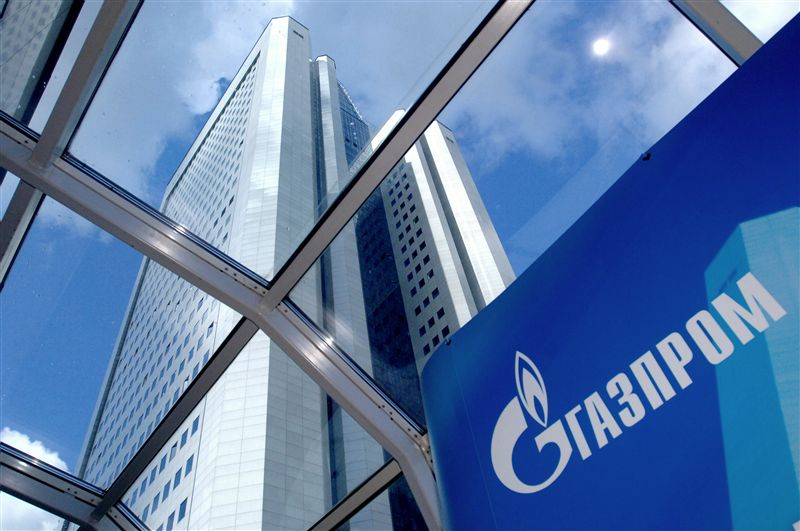
Gazprom Must Compromise on EU Charges, but Putin Cannot
Publication: Eurasia Daily Monitor Volume: 12 Issue: 78
By:

The European Commission delivered, on April 22, a “statement of objections” resulting from its probe launched back in September 2012, which amounts to charging Gazprom with abusing its dominant position on the gas market in several EU member states. The content of the charges has been less consequential than many experts had expected, and the price of Gazprom shares at the Moscow stock exchange already recovered from its small dip—although it still remains some 60 percent lower from its peak in 2008 (Kommersant, April 23). Media commentators speculated about the inevitable penalty reaching perhaps 15 billion euros ($16.3 billion), but the fact of the matter is that Gazprom has 12 weeks to prepare a response, which will then be evaluated by the European bureaucracy, before a specific fine is determined or a settlement is reached (Newsru.com, April 22). The space for compromise may be open, but for the Kremlin, these charges are not a matter of bargaining, but of principle.
Gazprom described the charges as “groundless,” but has started to work on a response, which will probably focus on the adjustments in its pricing policy in the last couple of years, when its behavior was indeed uncharacteristically gentle (Rbc.ru, April 22). If the Russian energy giant declares a readiness to eliminate some dubious provisions in its bilateral contracts, as for instance the ban on re-export, it may hope to negotiate the fine down to the level of about 550 million euros ($598.7 million), which its partners Ruhrgas and Gaz de France had to pay for their cartel deal in 2009 (Novaya Gazeta, April 23). The problem is that the European Union, in essence, aims to make it impossible for the Kremlin to use Gazprom as an instrument of its political intrigues, and that is what makes the charges (as Foreign Minister Sergei Lavrov characterized them) “unacceptable” (Interfax, April 22). The European Commission was quick to respond to Moscow’s signal about its readiness to support Gazprom’s position with the clarification that it is ready to negotiate with the company—but not with the state authorities (Rbc.ru, April 23).
The resolute denial in Brussels of any political subtext in the charges cannot shake the prevalent perception in Moscow that the EU is increasing the political pressure on Russia. One interesting point in this disagreement is about timing. According to many insiders, the “statement” was fully prepared last autumn, but the EU opted to postpone it not only because new commissioners for competition (Margrethe Vestager) and energy (Maros Sefcovic) needed time to sort out their portfolios, but also because it was considered risky to provoke Gazprom in the winter season—and not least, because Germany and France did not want any additional complications that could have derailed the delicate Minsk negotiations on the ceasefire in eastern Ukraine (Gazeta.ru, Slon.ru, April 22). From the Russian perspective, it is exactly the relative stabilization of the conflict in Donbas that has emboldened the EU to attack Gazprom, so the appropriate answer is to deploy new troops along the border with Ukraine (Newsru.com, April 24).
For the Brussels bureaucrats, such a response seemingly is incomprehensible, and they insist on treating Gazprom as just another transgressor of its fair competition rules, which seek to eliminate any further non-transparent gas-political deals in Europe (Slon.ru, April 23). Gazprom management knows perfectly well that the haughty political statements about turning the gas flows toward China have little connection with the reality of necessary investments in infrastructure. In fact, the company sees the need for urgent measures to uphold its shrinking position on the core European market (Nezavisimaya Gazeta, April 22). Presenting itself as a reliable and respectable supplier is increasingly difficult, particularly as Gazprom has to follow political orders from the Kremlin to discontinue gas transit through Ukraine inside the next five years (Forbes.ru, April 20). On top of that, the Russian energy firm has to sustain the gas flow into the separatist enclaves in the Donetsk and Luhansk regions, and Kyiv flatly refuses to pay for this “humanitarian assistance” (Kommersant-FM, April 23).
The European Commission assumes that its demand for gradual changes in Gazprom’s corporate culture is not only reasonable but also completely practical. But it is hard to reconcile this change with the severe deterioration of Russian political culture toward aggressive self-isolation. Some commentators tend to see in this clash of cultures “a declaration of war” by Brussels on Gazprom’s trademark blend of corruption, predation and political manipulation (Kommersant-FM, April 23). Patriotically minded high Russian officials are ready to go much further: thus, General Anatoly Sidorov, the commander of the Western Military District, now claims that the West has started a “hybrid war” against Russia (Rbc.ru, April 23). Such statements may appear out of tune with the rather cautious line taken by President Vladimir Putin in his recent extra-long Q&A session, where he refrained from directly threatening Ukraine and made only a couple of anti-American invectives (Newtimes.ru, April 20; see EDM, April 23, 24). Russia’s vicious propaganda campaign has not ceased, however. And despite the deepening economic crisis, the allocation of resources to rearmament and military activities is undiminished.
In February, Putin accepted a compromise on a ceasefire in Donbas likely because he assumed that he was negotiating from a position of strength. But this presumption has turned illusory and unusable as Ukraine is expanding ties with the West and bracing itself for a new Russian offensive. Accepting a compromise on Gazprom’s “conquest” strategy in the European market would, on the other hand, amount to not just a loss of face after a great many assertive promises but also to an admission of weakness, which would only invite further sanctions. What Putin needs, therefore, is to prove Russia’s readiness to up the stakes and accept the security risks, from which the EU would shirk. And such a predisposition to confrontation will most probably determine the course of Gazprom’s conflict with the European Commission. For the EU, it is necessary to establish that Gazprom is no different from any other big company—it must play by the same rules as everyone else. Whereas for Putin, it has become an article of faith that Russia—and by extension Gazprom—is unique and has a right to special treatment, so conventional rules do not apply. He may try to defy these rules, but over time, the consequences may prove increasingly more damaging to Gazprom and Russia.




